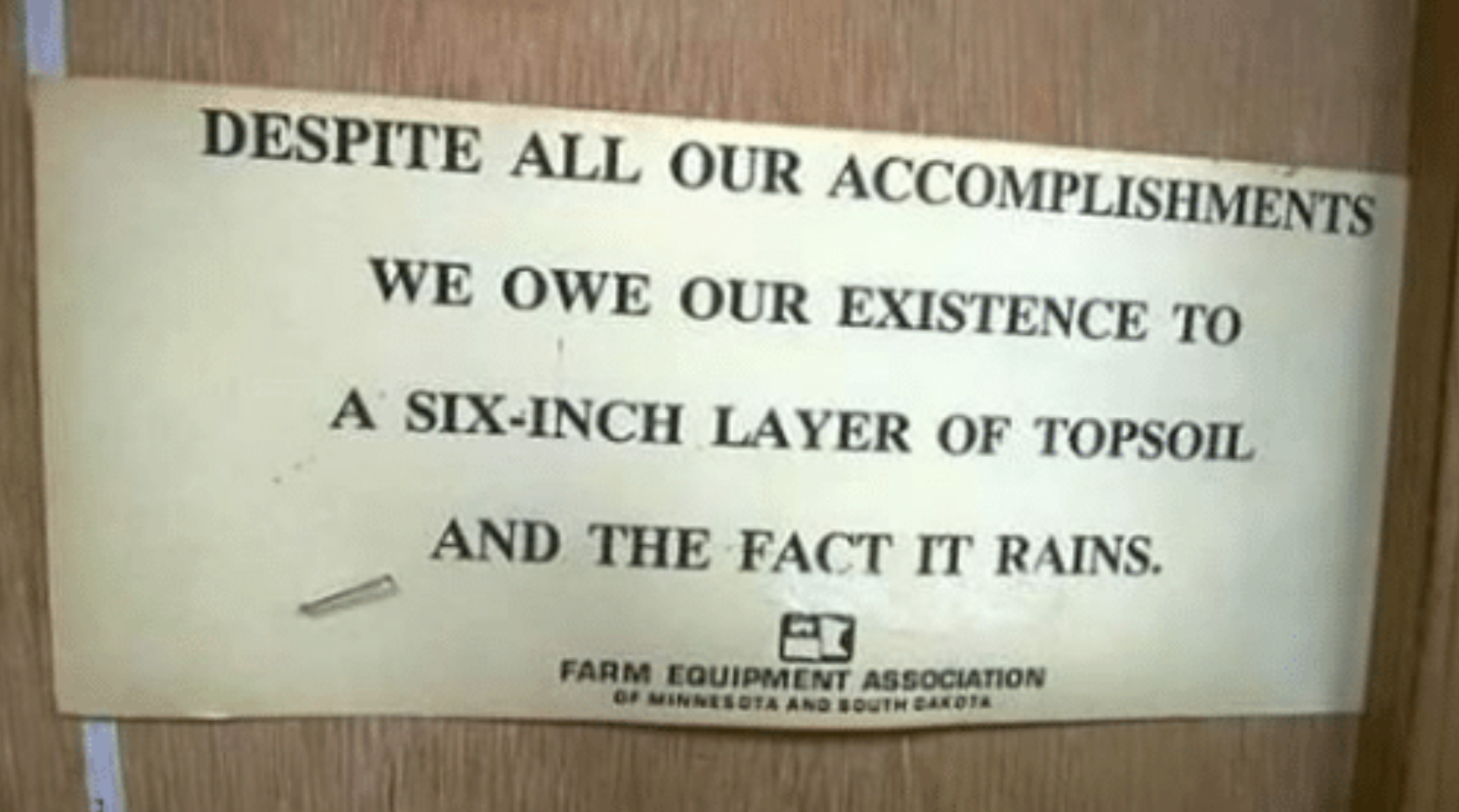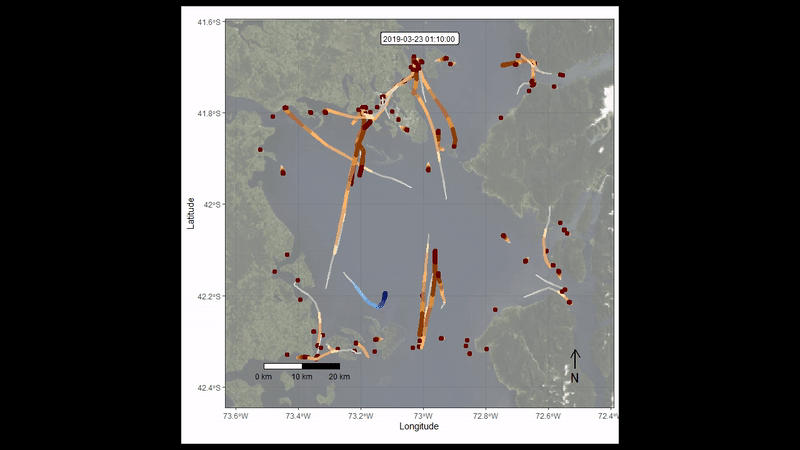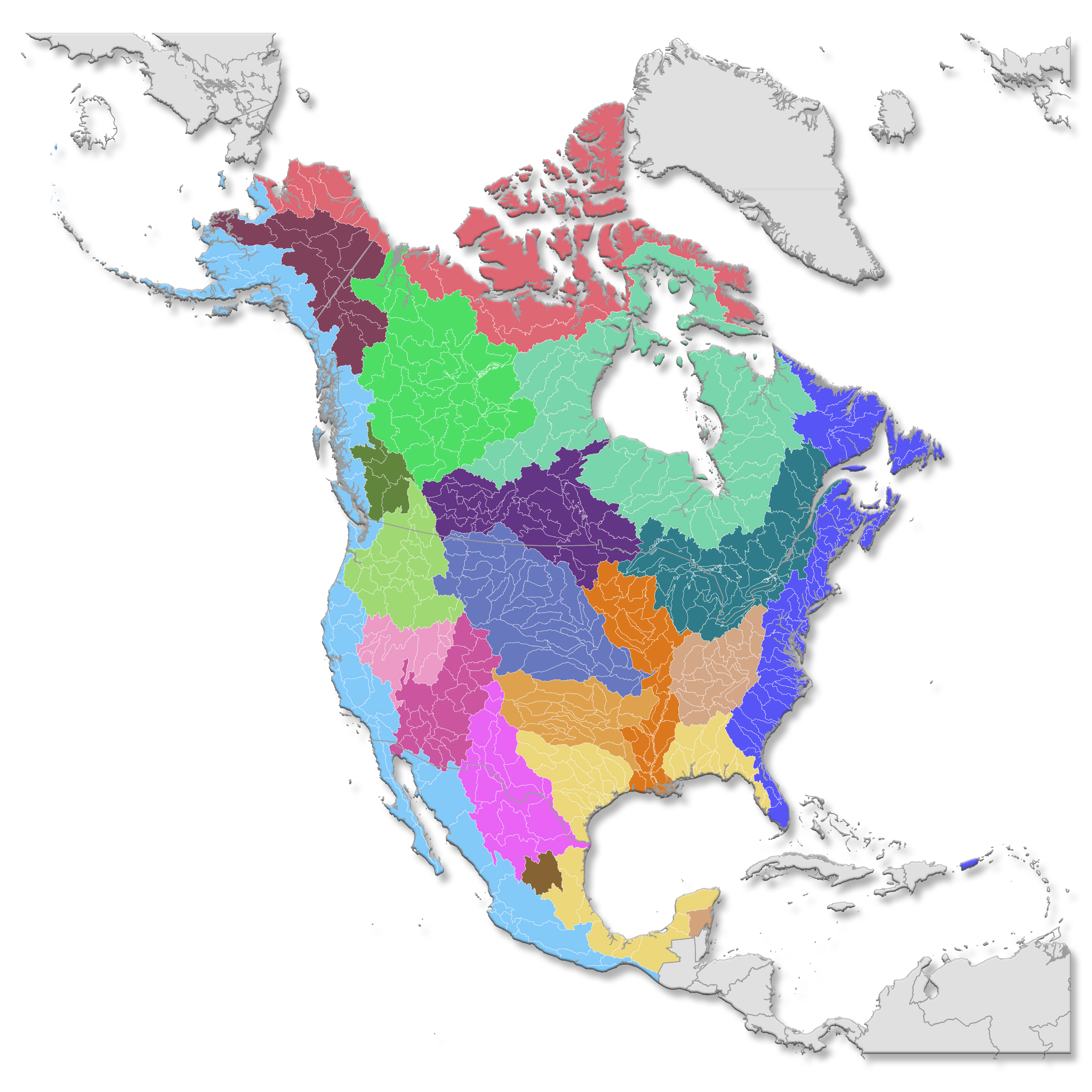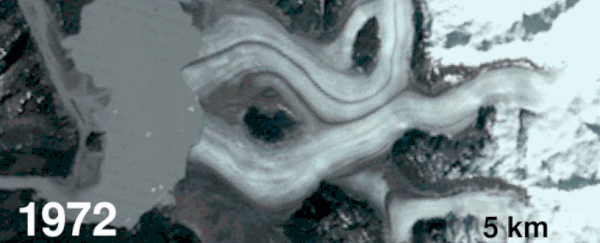This project is an exercise in collective imagination about a future where economic value is aligned to the ecological health of our planet, and what the systems might look like to make that future real. The first essay, Undualing, explores foundational assumptions on the nature of prosperity which perpetuate our era of mass extinction. Unlearning these assumptions introduces poignant technical and ethical questions to be explored in the subsequent essays, Commons Sense and Market in the Temple. Our goal is to reformulate a shared understanding of social and economic well-being which is no longer reliant on the division between a human society that is here, close at hand and a wild nature that is out there, and far away. In framing these challenges, I hope to contribute to a common vocabulary in technology, ethics, and ecology which in turn, supports a diversity of approaches to meaningfully engage regenerative economics.
This series is an initiative by the Regen Foundation to explore salient challenges and opportunities in regenerative economics more broadly, and on the blockchain more specifically. Our goal is to bring capacity to a diverse public to be critically informed about the intersection of climate justice, social justice, and web3. We see this work as an essential prerequisite for communities to own and govern the revolutionary infrastructures which support a systemic transition in our definitions of value away from extraction and towards regeneration.
If this work resonates, consider joining the Regen Network as a project developer, methodology developer, community staking DAO, or an interlocutor on our website, and our discord. Reach out a contact@regen.foundation.
Many individuals living in the modern world have internalized a contradiction about the relationship between the living world (”Nature”) and the economy (money). It goes like this:
Societal economic wealth is independent from planetary ecological health. Prosperity emerges more or less autonomously between these worlds, and thus we can treat them separately.
Well into the planet’s 6th mass extinction, most individuals see this severance for what it is, wrong. Further, many recognize how the policies, infrastructures, and ideologies which maintain such a separation ultimately perpetuate the complex intersection of social and ecological issues we refer to as the climate crisis.
We need to formulate a notion of prosperity which does not rely on a dualism of ecology and economy. What might we call that which stands outside this opposition?
Regeneration, as a philosophy and broader practice of systemic interrelation, offers a conspicuous path out. Long held as a core tenet of land stewardship and commonsing, the notion of regeneration has gained significant interest in the recent past among economic and decentralized finance circles. This movement, as well as the arguments of this piece, braid many lineages together, most notably the basic tenents of ecological economics. [1] Regenerative finance, or ReFi as many call is an attempt to reformulate our essential notions of value in order to leverage economic and market-based processes to heal a damaged planet. [2]
We need to be talking about whether this is possible at all. If it is, we don’t have many chances to get this right. Although the opportunities ReFi presents are exciting, it is also over-ripe to amplify and repeat existing harms. How do we avoid growing and building from a state of amnesia? This series, is a humble attempt to tether emerging behaviors and technologies within systems of knowledge and practice which are millennia old. In the process we hope to cultivate public literacy on what’s at stake to ensure that the proposed ways out of the trap we’ve set for ourselves are actually in fact … regenerative.

What are we talking about when we talk about regeneration?
Let’s start with how the Regen Economics Whitepaper defines it:
“Actions that increase the capacity, viability, and vitality of both the agent and system being acted within or upon.“
Framed in relation to humans and the planet, regeneration are those actions and processes which bring both human and the world which sustains us into greater capacity and vitality, in a reciprocal fashion.
Regeneration posits that individual / communal well being emerges through environmental stewardship. It is the opposite of extraction. Inasmuch as legacies of land management are reflected in our lexicon, it is telling that American english has a limited vocabulary for such a behavior. “Cocapacitate”, isn’t a word but incapacitate is. The analogous terms at hand stem largely from important work in feminist and decolonial thinking. Here are three.
Donna Haraway’s definition of sympoeisis.
Sympoeisis - a simple word; it means “making-with.” Nothing makes itself; nothing is really autopoietic or self-organizing … Sympoiesis is a word proper to complex, dynamic, responsive, situated, historical systems. It is a word for worlding-with, in company. Sympoiesis enfolds autopoiesis and generatively unfurls and extends it. [3]
It closely resonates with the belief of reciprocity outlined by Robin Wall Kimmerer when describing the diverse practices of gratitude and kinship of the first nations of Turtle Island (North America).
“Reciprocity—returning the gift—is not just good manners; it is how the biophysical world works. Balance in ecological systems arises from negative feedback loops, from cycles of giving and taking. Reciprocity among parts of the living Earth produces equilibrium, in which life as we know it can flourish.” [4]
As well as notions of care work, as typified in Matters of Care, Maria Puig Bellacasa’s evolution of Bruno Latour’s “Matters of Concern”.
“Matters of Care - contests the view that care is something only humans do, and argues for extending to non-humans the consideration of agencies and communities that make the living web of care by considering how care circulates in the natural world.” [5]
These definitions emerge through narrative and practice. The above authors situate their stories closely to different patterns of co-dependence and symbiosis between human beings, and “Nature”, (what I refer to as the “living world”). Spanning pollinators, soil microbes, and Douglas Firs, regeneration is co-authored between humans and the numerous lifeworlds we are embedded within.

This interrelation makes sense at a base level. We intuitively understand that to live on earth is always a double action. The separation of social and planetary prosperity is counterintuitive to our lived experience. Common sense tells us that deterioration in the health of “land”, is simultaneously a depreciation in its value, but we often struggle to acknowledge the inverse…that the remediation of damaged earth is a profound source of value. Where our current paradigm of neo-colonial extraction exacerbates the rift between Society and Nature, regeneration closes it. In fact it nullifies the distinction in the first place.

Undualing
Regeneration is a practice of undualing. Undualing isn’t really a word, I made it up to emphasize that the separation between ourselves and the world which sustains us has never existed. The dualism of Society and Nature is in turn, also the separation of economy from ecology. This is the creation myth upon which Modernism is built. [6] We’ve embedded it into the policies, infrastructures, and algorithms which run much of contemporary life. The separation of ecology and economy is synonymous with extraction inasmuch as the world beyond the human is considered a resource to be managed. Our default conflation of economic wealth with ecological extraction fundamentally drives the climate crisis ; and is a manifestation of the incredible narrowness of our definitions of wellbeing. Rather than a world co-created by a multitude of players, locations, and timelines, the dualism at the heart of modernity is a retreat from a diverse set of “worlding” practices to one universal world, centralized across time and space.
In contrast, undualing is the invitation to thicken the cast of characters which create value and sustain planetary livelihood. It is the practice of reanimating lifeworlds against forces of singularization. It resists the collapsing of many to the few. How might we nurture this pluralism in the infrastructures, organizations, and technologies we build? Through what scales and systems does regeneration offer a way out?
A start might be to develop and organize systems of value at a meso-scale, one which tethers the individual to planetary and upstream to downstream. A scale whose boundaries are already defined by the living world: the bioregion. Regeneration is a bioregional endeavor and in order to undual ecology and economy, our definitions of prosperity must be re-scoped.

Before unpacking bioregionalism as a model of regeneration further, let’s visit two acute consequences of the existing dualist paradigm and the challenges they present to anyone pursuing viable regenerative alternatives; being on time and being exceptional.
Being On Time
The climate crisis is a crisis of temporality. [7] It is the result of flattening a vast diversity of organismic and geological timelines into a single metronomic march defined by humans and our markets. In binding a myriad of life histories to anthropocentric time, we have accelerated biospheric collapse. Glacial time approaches market time, as they melt at a speed approaching financial quarters not millenia. According to the logic of our current paradigm, they’re melting right on time.

The standardization of time supports the emergence of global supply chains which smooth heterogeneous and disjoint ecosystems into a frictionless, one-dimensional space . Logistics overwrites place-based practices to no longer be defined by location and proximity, but by their proximity to global flows of goods and services.
It’s unrealistic and counter-productive to dismiss the notion of global trade writ large. Rather, the work is to problematize the monopolization of time and the dislocation of space, and ask how might “more-than-human” temporalities exist at all? How does regeneration create and sustain value through a multitude of timelines?
Being Exceptional
In separating ecological and economic prosperity we’ve created the conditions for a fundamental asymmetry to grow. Our current neoliberal extractivist model places overwhelming importance on economic wealth over ecological health, the latter commonly seen as an obstacle to the former. Asserting the importance of planetary health is typically at odds to incentives of wealth accumulation. By and large, wealth accumulation is structurally incentivized while ecological health is protected only through personal appeal. We’ve externalized the drive for profit into our algorithms and policies, and internalized the drive for ecological health as a matter of personal morality.
Perhaps counter-intuitively, measures taken to redress this imbalance by foregrounding the agency, and sovereignty of “Nature” over socio-economic wellbeing often perpetuate the false dualism between ourselves and the environment. Any action which asserts the supremacy of either the economy or planetary ecology over the other fundamentally risks perpetuating the logic of exceptionalism. Local economies are part of ecosystemic health. We cannot address the fallout of global biodiversity without addressing global poverty, and we can’t address global poverty without addressing global biodiversity collapse. In failing to embody and practice regenerative principles, a significant portion of the work of Western environmentalism and conservation, as well as markets for carbon capture and offsets, strengthen and perpetuate the schism driving mass extinction. [8]
In a similar fashion, projects based on the sovereignty of nature, and notions of ecological self-stewardship, bring about extremely important technologies and points of philosophical exploration, but inasmuch as viable human interrelation is removed from the equation, an opportunity for a more compelling and rich investigation is missed. We must resist the novelty to consider economies and ecologies as autonomous systems.

At this point it is uncontroversial to say that: economic wealth may not emerge without ecological health. However, how far along the path are we for the inverse to also be true? In our current state of crisis and collapse, can we separate ecological vitality from our social and economic vitality? Are we fundamentally linked in a state of interdependence in order to avert the greatest challenge we have ever known? In this stage of the climate crisis, are human beings a keystone species for a planet in imbalance? [9] What does playing that role look like?

Being Bioregional
To resist the dissonance I’ve outlined this far is not to argue for a “return” to some state of primitivism. Bioregionalism is not a “return” to a more essential form of social life or State of Nature. Rather it is the assertion that the spatial and temporal boundaries for our regenerative paradigm already exist. They emerge from the land itself in the form of watersheds, soil series, and wind currents. People typically understand what is east, what is west of them, but know very little about what is upstream and what is downstream of them.
Undualling, at the heart of regeneration is the fertile ground to grow sovereign bioregional regenerative economies, which must navigate the water which flows downstream, and be accountable to them. Regenerative economies cycle value as they cycle energy and nutrients. They are defined by the “sheds'' of energy, nutrients, life, and activity which constitute a bioregion.
![The ahupua'a is an integral component of native Hawaiian land management (County of Maui, 2009). Traversing the summit to sea, diverse ecological and economic zones interact through the flow of goods, services, and stream water to define a discrete watershed. [10]](https://www.researchgate.net/profile/Andrew-Jacobson-5/publication/45257438/figure/fig3/AS:669457286438921@1536622463542/The-ahupuaa-is-an-integral-component-of-the-native-Hawaiian-land-tenure-system-County.jpg)
Watersheds are helpful metaphors in thinking through regenerative bioregional economies. Upstream and downstream are distinct but inseparable. Economic flow is not simply goods and services moving downstream, but increasingly essential ecosystem functions like carbon sequestration, soil fertility, pollination, and clean water. The unidirectional flow of value evolves into a cycle where the source is replenished by the mouth, in a manner similar to the water cycle… a valueshed. What would it mean if we considered the carbon capture by trees, and the crop pollination by bees as utilities with value like water lines and energy grids?

Regenerative economies do not offset, they pay the actual value of the services a whole ecology brings. Paying for the labor and services the living world brings is a manner of insetting… of completing the cycle within naturally occurring boundaries in an ongoing way. This model of regenerative land management is similar to the principles of commonsing. It is both a redefinition of how value is created, and the many directions it flows. Regeneration in this sense, is a measure of how diverse forms of wellbeing can be mutually sustained.
![Nepal has become one of the first developing nations to adopt a community forestry management program which gives authority to the community and groups to manage forest resources. Due to the program's overall success, one fourth of national forests in Nepal are under the community management where 1.6 million households are included as community forest user groups. [11]](https://images.mirror-media.xyz/publication-images/mggUNCHnhkXVb8ExIRjCZ.png)
If our goal is to create tenable formulations of prosperity for a future at all, we must actively unlearn the embedded contradictions which violate our basic common sense, and reestablish on an ethical and technical level, that to practice regeneration and reciprocity is what makes us human in the first place. How we practice needs to be as diverse as the persons practicing it. At the base, we must work towards a transformation of consciousness not only of moral value, but economic value as well. Advancing climate justice as a matter of altruism alone is not sufficient. How does the economy reflect our ethics?
The proliferation of bioregional regenerative economies meets resistance not only through the inertia of the status quo and the elite interests which maintain it, but also in some of the poignant assumptions upon which it is built. I’ll conclude by outlining two challenges inherent to the project of regenerative finance, setting the stage to explore how some of the processes of web3, namely blockchains and DAO’s, might be relevant. These challenges are the basis for the next two essays of this series. Undualing, is a means of preparing ground.
Commons Sense →The Challenge of Legibility
The markets which drive our current economy are by and large blind. By and large, they are not programmed to sense the state and contours of the living world outside profit and shareholder returns. In order to rewrite our basic formulas of value, we need to see how ecosystem services and functions support our life on earth and bring value to our economy. We need a Cambrian explosion in our economic paradigm brought by new capacities to see the state of the living world and make it legible. [12] A regenerative paradigm predicated on undualing cannot exist without the sensing organs capable of describing ecological state, wellbeing and degrees of risk. The ideology of extractivism has left these systems, practices, and infrastructures grossly underdeveloped and under-recognized.
Commons Sense, the next essay in this series, explores how we sense the world, and how different forms of ecological knowledge production like wireless sensor networks, traditional ecological knowledge, and oral-traditions are created, held, and shared as commons. How do we gather information, weave stories, and create situated knowledge about the state of the earth in order to articulate its value? We’ll explore how eccentric assemblages of people, animals, satellites, minerals, and algorithms could form hybrid commons which attest to, and bear witness to the state of our planet. I argue these cyber-physical commons are another way of saying DAOs, and we’ll explore the basic mechanics of ReFi in web3 from this perspective. How do we keep integrity in the translation of our knowledge of the living world across medium and context in order to see like a planet?
Market in the Temple →The Challenge of Equivalence
To see, means to incorporate that which previously never had a line item. If the wellbeing of the living world is not on the docket, then it is presumed to be worthless. In creating and internalizing forms of value which have historically been an externality and thus unaddressable, have we financialized “Nature”? Did neoliberalism already do that… and what about web3? Is that even a helpful formulation?
Market in the Temple explores the practical and theoretical paradoxes in undualing ecology and economy. If these worlds are not meant to touch, then wholesale theft of the living world can continue unabated, with only spiritual and moral appeals to stop it. If we accept the urgency of undualing, we are left with a profound challenge of equivalence. What’s the value of the pollinator population in the Hudson River Valley? What’s the value of the services provided by an aquifer? How much do we stand to lose if there is a systemic collapse in the biosphere? Isn’t that like being divided by zero? How we build the capacity to engage in the complexity and delicacy of these topics is a reflection of our ability to steer the evolution of regenerative finance. Undualing produces great potential for risk. Is it worth it and how do we know?
Thanks to Kei Kreutler, Lucy Siyao Liu, Bryan Lehrer, Yasaman Sheri, and Gary Zhexi Zhang, for the support and peer review.
[1] - For an introduction to the work of ecological economics more broadly I suggest the work of Robert Costanza, Spencer Beebe, and E.F. Schumacher.
[2] - For an introduction to the field of Regenerative Finance (ReFi) I recommend Gregory Landua’s interview on the Ownership Economy.
[3] - Harraway, Donna. Staying With the Trouble, Chapter 3
[4] - Kimmerer, Robin Wall. Returning the Gift.
[5] - María Puig de la Bellacasa. Matters of Care
[6] - Latour, Bruno. We Have Never Been Modern
[7] - Bratton, Benjamin. On Anthropolysis. In Bratton’s language, the anthropocene is a project to bind planetary time to social time.
[8] - Gilio-Whitaker, Dina. (Not So) Strange Bedfellows from As Long as Grass Grows
[9] - My first exposure to the notion of human beings’ role as a planetary keystone species in resolving the climate crisis was from the keystone speech by Gregory Landua at ReFi Summit, Seattle 2022.
[10] - Paul Jackobson, Andrew. Prioritizing Land for Conservation Purposes in East Maui, Hawai’i
[11] - K.P. Acharya. Twenty-four years of community forestry in Nepal
[12] - Thanks to Gary Zhexi Zhang for prompting the word “legibility”.